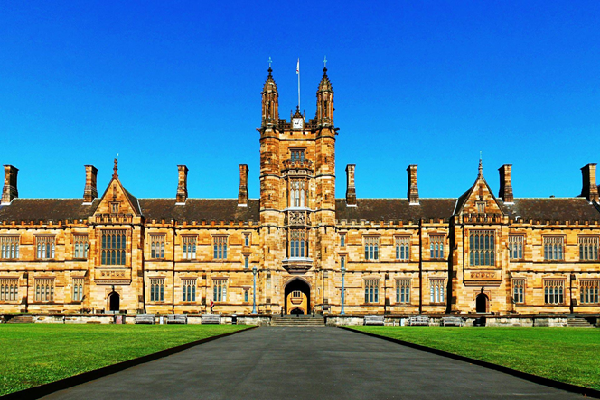University of Sydney: Glasses bring colour to the museum
Museum guests who are red-green colour blind can now borrow special EnChroma glasses from the Chau Chak Wing Museum and experience exhibitions – for example the vast array of blue hues in the Coastlines exhibition – in clear, vibrant colour for the first time.
“The accessibility of art and design is always top of mind at the Chau Chak Wing Museum and we are very pleased to be the first venue in Australia to offer this technology through EnChroma’s Colour Accessibility Program,” said Dr Paul Donnelly, Deputy Director of the Museum.
“This partnership is another important step forward in our inclusivity goals, helping people who are colour blind to experience the full wonder and vibrancy of the exhibitions we have on offer.”
One in 12 men (8 percent) and one in 200 women (0.5 percent) are colour vision deficient; an estimated 350 million people worldwide. More than one million Australians are colour blind, as are over 3,500 of the 83,000 students and staff at the University of Sydney.
While people with normal colour vision see over one million shades of colour, those with colour vision deficiency only see an estimated 10 percent of hues and shades. As a result, colours can appear dull, indistinct, and difficult to discern.
photo of a man with glasses on looking amazed while he looks at a painting
Museum regular visitor Tim Robinson gets a whole new view.
Tim Robinson was among the first to try the glasses in the museum. “I’m a regular visitor to the Museum and know lots of the works well. But I saw many of them in a completely new way for the first time – with different colours and depth and clarity. I have problems with blue and purple so the beach and sky in the paintings of Sydney Harbour, for example, were much more clearly defined.”
“But most impressive was revisiting the Museum’s Egyptian Galleries again – I’ve always been fascinated by archaeology so it was fantastic to see the full range of colours. I wish I’d had these when I toured Egypt.”.
David Eliovson said the glasses gave him a greater appreciation for the skill of artists. “When I look at South Sea Beauty with the glasses on I can see all the variations in how Chevalier has painted the green sea and how some shades of colour are vividly brighter than others, adding to the overall effect.”
“The biggest wow moment was when I looked at a bridal skirt from Papua New Guinea. Without the glasses, I thought the skirt was a dull reddish colour that had faded with age. With them on I realised that it is bright red and has been wonderfully preserved from the 1970s.”
A museum fan who once spent a 12-hour layover in New York visiting the Metropolitan Museum of Art, David supports making the glasses available in museums more widely.
“The mission of EnChroma is to enable those with colour vision deficiencies to access more of life’s colourful experiences through our specially engineered eyewear,” said Erik Ritchie, CEO of EnChroma.
“We are excited to collaborate with the University of Sydney’s Chau Chak Wing Museum to make its colourful works accessible to those with colour blindness. We encourage other museums, universities and public institutions in Australia to support accessibility as well.”
EnChroma’s patented lens technology is engineered with special optical filters that enable people with red-green colour blindness to see an expanded range of colours more vibrantly, clearly and distinctly. A study by the University of California, Davis, and France’s INSERM Stem Cell and Brain Research Institute, published in the scholarly journal Current Biology, demonstrated the effectiveness of EnChroma glasses.
EnChroma continues to lead in advocating for “colour accessibility” through its EnChroma Colour Accessibility Program. The program helps venues including schools, state parks, libraries and museums – such as the Chau Chak Wing Museum – to purchase and loan EnChroma glasses to help make schoolwork, attractions and experiences that involve colour accessible to the colour blind.

